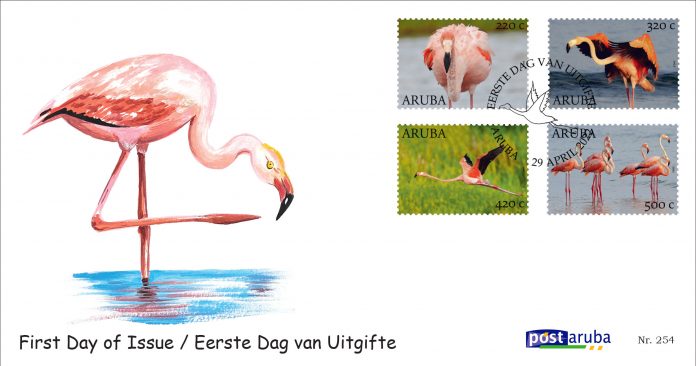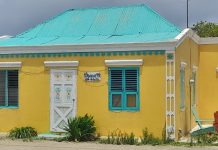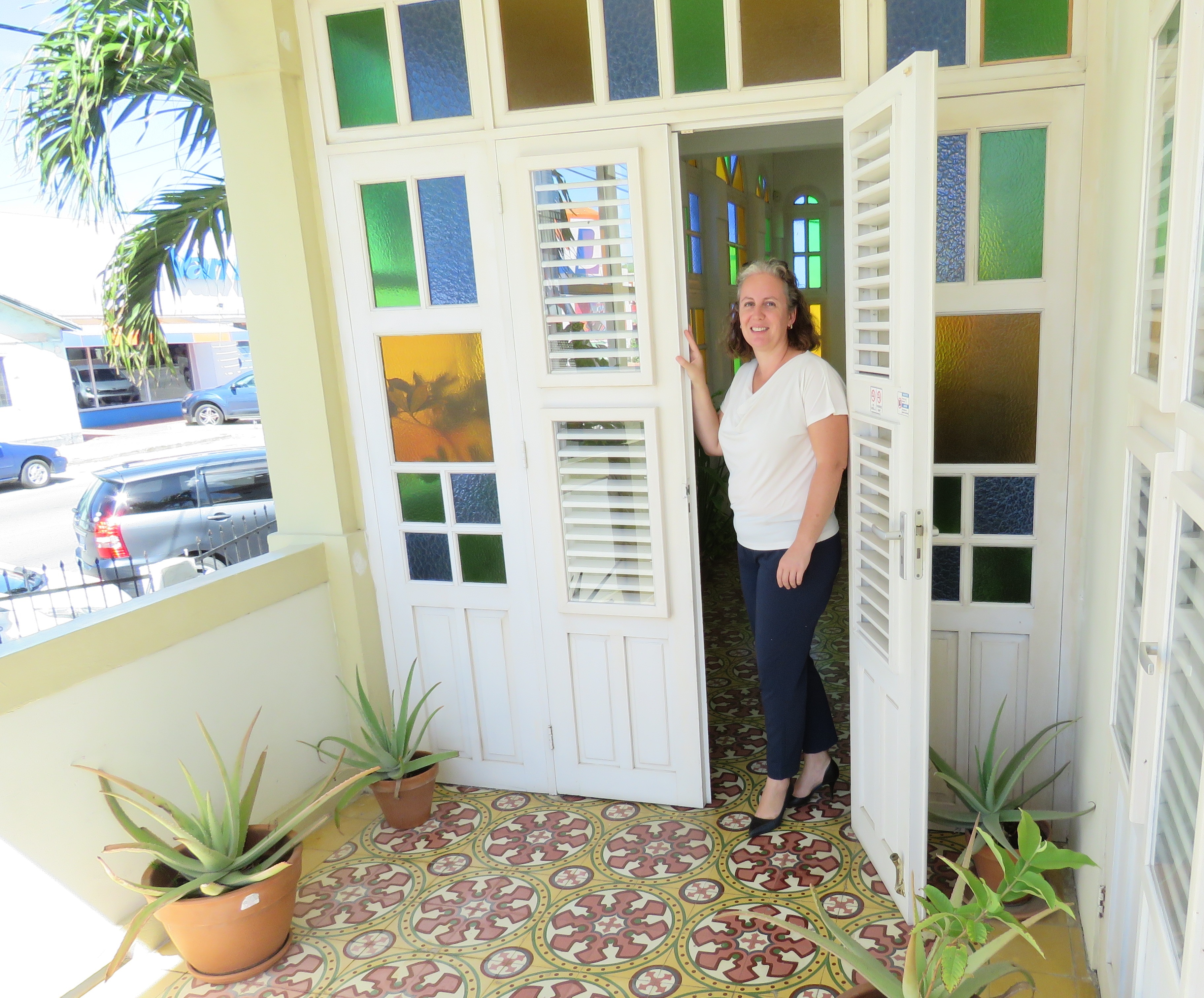On April 29, 2022, Post Aruba N.V. emits a stamp series named ‘Flamingo. The photographs used for this emission, which consists of four stamps, were taken by Mr. Gregory M. Peterson, and the First Day Cover envelope and stamp were designed by Mr. Elvis Tromp.
About the flamingos:
There are four flamingo species distributed throughout the Americas (including the Caribbean), and two species native to Africa, Asia, and Europe.
Flamingos usually stand on one leg with the other tucked beneath the body. They are capable flyers, and flamingos in captivity often require wing clipping to prevent escape.
Young flamingos hatch with grayish-red plumage, but adults range from light pink to bright red due to aqueous bacteria and beta-carotene obtained from their food supply. A well-fed, healthy flamingo is more vibrantly colored, thus a more desirable mate; a white or pale flamingo, however, is usually unhealthy or malnourished. Captive flamingos are a notable exception; they may turn a pale pink if they are not fed carotene at levels comparable to the wild.
Flamingos filter-feed on brine shrimp and blue-green algae as well as insect larvae, small insects, mollusks and crustaceans making them omnivores. Their bills are specially adapted to separate mud and silt from the food they eat, and are uniquely used upside-down. The filtering of food items is assisted by hairy structures called lamellae, which line the mandibles, and the large, rough-surfaced tongue.
Flamingos are considered very noisy birds with their noises and vocalizations ranging from grunting or growling to nasal honking. Vocalizations play an important role in parent-chick recognition, ritualized displays, and keeping large flocks together. Variations in vocalizations exist in the voices of different species of flamingos.
Flamingos are very social birds; they live in colonies whose population can number in the thousands. These large colonies are believed to serve three purposes for the flamingos: avoiding predators, maximizing food intake, and using scarce suitable nesting sites more efficiently.
This stamp series and First Day Cover envelope are available at all the Post Office locations, namely in Oranjestad and San Nicolas, and also the Post Aruba online stamp shop www.postaruba.com/stampshop
For more information on the “Flamingo” stamps serie please visit the Facebook page: Aruba Stamps or Webpage: postaruba.com/philatelic/

















